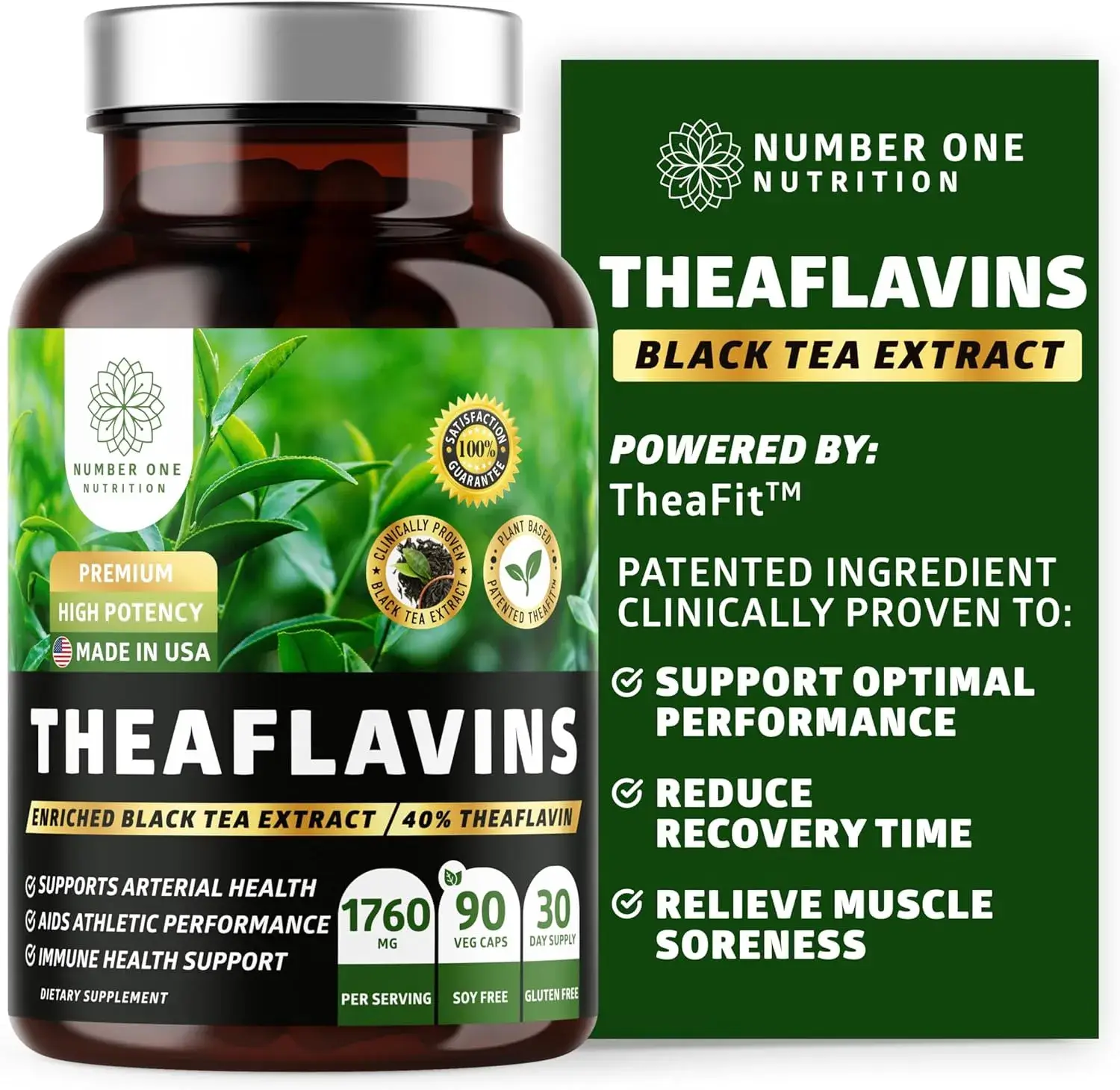Table of Contents
Is chamomile tea good for morning routines? While many consider it just a bedtime drink, I’ve discovered this ancient herb offers surprising benefits to kickstart your day.
Dating back to 1550 B.C.E. in ancient Egypt, chamomile has actually been valued for centuries beyond just helping you sleep. This gentle yet powerful tea contains apigenin, a natural compound that promotes relaxation by reducing stress levels. Additionally, research shows chamomile tea can improve your immune system and even lower your risk of heart disease. In fact, a study involving 64 diabetic individuals found that those who drank chamomile tea daily with meals for eight weeks experienced significantly lower average blood sugar levels compared to those who drank water.
From easing digestion issues to relieving cold symptoms, chamomile’s versatility makes it worth reconsidering for your morning ritual. In this article, we’ll explore seven science-backed reasons why this soothing brew deserves a place in your AM routine.
Boosts Morning Relaxation and Reduces Stress
The morning rush often leaves us feeling tense and anxious before the day even begins. Contrary to popular belief that chamomile is only for nighttime, starting your day with this gentle herb can set a positive tone through its remarkable stress-relieving abilities.
Chamomile tea stress-relief properties
Chamomile contains a powerful flavonoid called apigenin that creates a natural calming effect without causing drowsiness or unwanted side effects. Unlike conventional anti-anxiety medications, chamomile works gently by binding to specific receptors in your brain, particularly GABA receptors, which are known to reduce nervous system activity and promote a sense of calmness.
When I drink chamomile in the morning, I notice how it creates what many describe as a “gentle reset” for both body and mind. This happens because apigenin provides multiple benefits beyond simple relaxation:
- Reduces racing thoughts common during busy mornings
- Eases muscle tension that builds up from stress
- Helps alleviate emotional unrest before tackling the day
Furthermore, apigenin’s muscle relaxant and antispasmodic properties help relieve physical symptoms of stress like tension headaches and digestive discomfort that frequently occur during hectic mornings. These natural properties make chamomile particularly valuable for creating a balanced start to your day without the foggy feeling some relaxation aids cause.
Scientific evidence on stress reduction
Research consistently demonstrates chamomile’s effectiveness in reducing anxiety and stress markers. According to clinical studies, chamomile significantly improves anxiety symptoms not only in diagnosed anxiety disorders but also in various other groups experiencing stress.
Perhaps most compelling is chamomile’s impact on cortisol—your body’s primary stress hormone. In one study, participants in the chamomile group showed a remarkable decrease in salivary cortisol levels from an average of 5.3 μg/dL before treatment to 3.0 μg/dL after treatment, a statistically significant reduction (p-value = .01).
For those struggling with anxiety, research reveals another interesting pattern: subjects who began with lower morning cortisol and a less steep diurnal cortisol slope (common in anxiety disorders) experienced significantly greater benefit from chamomile treatment. This suggests chamomile may help normalize disrupted stress-response systems rather than simply masking symptoms.
Long-term chamomile use shows even more promising results. Patients with Generalized Anxiety Disorder (GAD) who continued chamomile treatment experienced improved psychological well-being along with better blood pressure and weight profiles. Many studies report these benefits without any threatening or adverse side effects.
How to use chamomile tea for a calm morning
Based on research and practical experience, here’s how to incorporate chamomile tea effectively into your morning routine:
- Timing matters: While evening use helps with sleep, morning chamomile (especially during high-pressure moments) provides a quick reset without causing drowsiness.
- Preparation method: For optimal stress-reducing benefits, steep one tablespoon of dried chamomile flowers or a quality tea bag in hot (not boiling) water for 5-10 minutes. This allows for full extraction of the beneficial compounds.
- Mindful consumption: Instead of rushing through your cup, sip slowly and use this time as a moment of mindfulness—giving your body time to unwind and your mind permission to let go of worries before starting your day.
For consistent benefits, experts suggest drinking chamomile tea 3-4 times daily between meals. I’ve found that establishing a regular morning chamomile ritual works best when combined with other calming practices like deep breathing or a few minutes of stretching.
The evidence clearly supports what many have experienced personally—chamomile tea provides gentle yet effective stress reduction that’s perfectly suited for morning use. By calming both body and mind without sedation, it creates an ideal foundation for a productive, balanced day.
👉 Indulge in the Best Chamomile Tea for Deep Relaxation 👈
Improves Digestive Health for a Better Start

Starting your day with digestive discomfort can derail your entire morning. Fortunately, a cup of chamomile tea might be the gentle solution your body needs.
Chamomile tea and digestion
For thousands of years, people have turned to chamomile as a natural remedy for numerous gastrointestinal conditions. I’ve found this humble flower works wonders by dispelling gas, soothing the stomach, and relaxing the muscles that move food through the intestines.
Chamomile contains powerful compounds that directly benefit your digestive system. The herb works primarily as an antispasmodic agent, helping to calm stomach muscles and provide relief from issues like indigestion and abdominal pain. This muscle-relaxing effect makes morning digestive discomfort much more manageable.
The herb’s anti-inflammatory properties further support digestive health by soothing irritation in the stomach lining and intestines. Moreover, chamomile contains α-bisabolol, a remarkable compound that safeguards the stomach lining, exhibits anti-ulcerogenic effects, and protects against gastric damage.
What makes chamomile ideal for mornings is how it addresses multiple digestive concerns simultaneously:
- Reduces smooth muscle spasms in the gut
- Helps prevent stomach ulcers
- Decreases stomach acidity
- Calms inflammation in the digestive tract
- Supports healthy gut motility without causing drowsiness
Studies on digestive benefits
Scientific research increasingly supports what traditional medicine has long claimed about chamomile’s digestive benefits. One notable study found that chamomile, combined with apple pectin, helped shorten the course of diarrhea in children as well as relieve symptoms associated with the condition.
In another clinical trial, infants suffering from colic were given herbal tea containing chamomile and other herbs. After 7 days of treatment, parents reported that the tea eliminated colic in 57% of the infants, whereas placebo was helpful in only 26% (P<0.01).
For those suffering from irritable bowel syndrome (IBS), chamomile shows exceptional promise. A 2015 study reported significant improvement in all IBS symptoms after just four weeks of treatment with chamomile. This included noticeable reductions in bloating, abdominal pain, and improvements in stool consistency.
Fascinating research has identified two biological agents in chamomile—apigenin and quercetin—that specifically counteract IBS symptoms. Quercetin, an antioxidant with powerful anti-inflammatory actions, was found to inhibit intestinal motor function in IBS-induced rats with diarrhea and reduce abdominal hypersensitivity.
Additionally, a study by Khadem et al. (2018) demonstrated chamomile’s positive effect on gastrointestinal motility disorders, whereas Agah et al.’s research (2015) confirmed chamomile significantly decreased IBS symptoms.
Morning routine tips for digestive support
Incorporating chamomile tea into your morning routine can set the stage for better digestive health throughout the day. From personal experience, I recommend these evidence-based approaches:
- Optimal timing: Enjoy a cup of chamomile tea 15-20 minutes before breakfast to prime your digestive system. Unlike coffee, chamomile won’t irritate your stomach on an empty morning stomach.
- Proper preparation: For maximum digestive benefits, steep one tablespoon of dried chamomile flowers or a quality tea bag in hot (not boiling) water for 5-10 minutes. Cover your mug during steeping to preserve the essential oils.
- Enhancement options: Consider adding a small amount of honey for additional soothing properties or fresh ginger to further support digestion. Both complement chamomile’s beneficial effects without diminishing them.
- Mindful consumption: Sip slowly and intentionally. This not only maximizes chamomile’s contact with your digestive tract but pairs perfectly with its stress-reducing properties—a bonus since stress often exacerbates digestive issues.
- Consistency matters: Regular consumption yields the best results. Studies suggest drinking chamomile tea with meals can help regulate blood sugar levels, which indirectly supports digestive health by preventing sugar-related inflammation.
Indeed, chamomile stands out as a gentle yet powerful morning ally for anyone seeking digestive comfort without pharmaceutical interventions. Its comprehensive approach to gastrointestinal wellness makes it an excellent addition to any health-conscious morning routine.
Supports Immune System Function

Beyond its calming properties, chamomile tea offers powerful immune support that makes it an excellent morning beverage. Research increasingly confirms what traditional healers have known for centuries—this gentle herb actually strengthens your body’s natural defenses.
Chamomile tea immune-boosting compounds
Chamomile contains several bioactive compounds that directly enhance immune function. At the forefront is apigenin, a remarkable flavonoid that not only calms nerves but actively boosts immune response. This compound works alongside other potent constituents:
- Flavonoids and terpenoids: These plant compounds possess strong anti-inflammatory properties that help optimize immune function
- Chamazulene: A powerful antioxidant that scavenges harmful free radicals and inhibits inflammatory compounds like leukotriene B4
- Bisabolol and its oxides: These terpenoids exhibit antimicrobial properties that help defend against pathogens
These compounds work synergistically to enhance immune response. Interestingly, chamomile has been scientifically proven to stimulate white blood cell production—the cornerstone of your immune system. These include neutrophils and lymphocytes, your body’s primary defenders against infections.
One significant way chamomile supports immunity is through its anti-inflammatory action. It inhibits the production of inflammatory cytokines including tumor necrosis factor-alpha (TNF-alpha), interleukin-1 beta (IL-1beta), and interleukin-6 (IL-6). This anti-inflammatory effect helps prevent chronic inflammation that can otherwise weaken immune function.
Research on immune response
Scientific studies increasingly validate chamomile’s immune-enhancing properties. In one noteworthy study, fourteen volunteers each consumed five cups of chamomile tea daily for two consecutive weeks. Researchers found a significant increase in urinary levels of hippurate and glycine—compounds associated with increased antibacterial activity.
Laboratory research demonstrates how chamomile inhibits NO (nitric oxide) production in activated macrophages, key cells in immune response. This inhibitory effect works by reducing inflammatory signaling pathways, helping to regulate immune activity without suppressing it completely.
Perhaps most compelling are clinical studies with immunocompromised patients. Research published in the Avicenna Journal of Phytomedicine found that chamomile syrup helped children with acute lymphoblastic leukemia by increasing their white blood cell counts. This immune-boosting effect minimized chemotherapy-induced neutropenia—a dangerous condition where neutrophil counts drop too low.
The study found that patients receiving chamomile experienced an increase in mean Absolute Neutrophil Count (ANC) levels, whereas the placebo group showed a decreasing trend. Moreover, the rate of ANC increase accelerated in the treatment group during a 5-day monitoring period.
For everyday immune support, chamomile’s effectiveness stems from its dual action as both an NRF2 inducer (activating antioxidant pathways) and an NF-κB inhibitor (reducing inflammatory processes). This balanced approach helps regulate immune function rather than simply stimulating it.
Best time to drink for immunity
Morning represents an optimal time to harness chamomile’s immune benefits. After overnight fasting, your body absorbs nutrients more efficiently, maximizing the uptake of chamomile’s beneficial compounds.
For immune support, I recommend this morning regimen:
- Drink one cup of freshly brewed chamomile tea 15-30 minutes before breakfast
- Use high-quality dried flowers or tea bags, steeping for 5-7 minutes to extract maximum beneficial compounds
- Consider a second cup mid-morning, particularly during cold and flu season
Although traditionally associated with bedtime, morning chamomile consumption provides unique advantages. Your cortisol levels naturally peak in the morning, and chamomile’s anti-inflammatory properties help modulate this stress hormone, creating favorable conditions for balanced immune function.
Consuming chamomile in the morning offers practical benefits as well. A 2005 study found that chamomile supported immune function and reduced symptoms when people were feeling under the weather. By incorporating it into your morning routine, you provide your body with protective compounds that work throughout the day.
Consequently, while chamomile tea works wonderfully at any time, its immune-enhancing properties make it an excellent addition to your morning ritual—proving this versatile herb offers far more than just a good night’s sleep.
👉 Taste Premium Chamomile Tea Loved by Thousands of Tea Lovers 👈
Stabilizes Blood Sugar Levels
If you struggle with energy crashes or mid-morning hunger pangs, chamomile tea might offer unexpected help. Research shows this gentle herb does more than calm nerves—it actively helps regulate blood glucose levels.
Chamomile tea and blood sugar regulation
Chamomile tea contains powerful compounds that support pancreatic health—crucial for blood sugar control. The pancreas produces insulin, the hormone responsible for moving sugar from your bloodstream into your cells. Interestingly, chamomile’s anti-inflammatory properties may prevent damage to pancreatic cells, helping maintain healthy insulin production.
I’ve found that regular consumption creates a noticeable difference in energy stability throughout the morning. This happens primarily because chamomile tea aids in lowering blood sugar levels while simultaneously protecting against oxidative stress—an imbalance that often leads to diabetes-related complications.
The plant’s beneficial effects extend beyond simple glucose regulation. Chamomile tea works through multiple mechanisms:
- Increasing glycogen storage in liver cells
- Reducing blood glucose levels
- Blocking sorbitol in human erythrocytes
- Providing protective effects on pancreatic β-cells against diabetes-induced oxidative stress
Perhaps most impressively, chamomile suppresses the release of oxidative stress indicators into circulation in a dose-dependent manner, essentially creating cellular protection while managing diabetes.
Scientific studies on diabetes and insulin
Clinical research provides compelling evidence for chamomile’s blood sugar benefits. One groundbreaking study involving 64 participants with type 2 diabetes found that drinking chamomile tea three times daily after meals for eight weeks significantly decreased HbA1C levels, serum insulin, and insulin resistance compared to the control group.
The results were remarkable—chamomile tea consumption decreased:
- HOMA-IR (insulin resistance) by 23.60%
- TNFα levels by 4.87%
- High-sensitivity C-reactive protein by 57.20%
Another comprehensive analysis revealed that for every 100 mg increase in chamomile extract, blood glucose decreases by 54.35 mg/dl. This dose-response relationship confirms chamomile’s potent blood-sugar lowering abilities.
A meta-analysis of randomized controlled trials further validated these findings, showing that chamomile supplementation improved biomarkers of glycemic control in adults with type 2 diabetes or impaired glucose tolerance. The study demonstrated reductions in both fasting glucose (medium effect size) and HbA1c (large effect size).
Further research revealed chamomile’s impressive ability to decrease total cholesterol, triglycerides, and LDL cholesterol while simultaneously improving antioxidant status. One study observed significant increases in antioxidant levels, including glutathione peroxidase—a major antioxidant that helps combat the oxidative stress common in diabetes.
Morning use for blood sugar control
While chamomile tea works at any time, morning consumption offers unique advantages for blood sugar management. Starting your day with chamomile establishes stable glucose levels that can prevent mid-morning crashes and subsequent cravings.
For optimal blood sugar control, try this morning approach:
- Drink one cup of chamomile tea with breakfast to help moderate post-meal blood sugar spikes
- For maximum benefit, steep tea for 5-7 minutes to extract beneficial compounds
- Make it a consistent part of your routine—studies show regular consumption produces the best results
Remember that chamomile tea works as a complementary approach, not a replacement for diabetes medications. Nonetheless, its gentle yet effective action makes it an excellent addition to your morning routine, particularly if you’re concerned about blood sugar stability.
This traditional herb helps regulate glucose levels without side effects, offering yet another compelling reason to reconsider chamomile as a morning drink rather than just a nighttime ritual.
Enhances Skin Glow and Hydration
Throughout history, chamomile has been treasured not just for internal health benefits but for its remarkable effects on skin appearance and texture. Roman chamomile has been widely used in cosmetic preparations primarily for its soothing and softening effect on the skin.
Chamomile tea skin benefits
Drinking chamomile tea regularly offers substantial benefits for skin health from the inside out. The herb contains natural oils and substances that aid in moisturizing the skin, enhancing both texture and overall appearance. These moisturizing properties make chamomile particularly beneficial for those with dry or dehydrated skin.
Chamomile tea contains anti-inflammatory compounds that effectively reduce redness, swelling, and irritation in the skin. Hence, it serves as an excellent choice for people dealing with acne, rosacea, or other inflammatory skin conditions.
Proper hydration is essential for maintaining healthy skin, and chamomile tea helps keep your skin hydrated while preventing dryness, flakiness, and related issues. Additionally, the plant’s skin-lightening properties can help brighten the complexion and lessen the appearance of dark spots and hyperpigmentation.
Antioxidants and anti-inflammatory effects
The powerful skin benefits of chamomile stem from its rich composition of bioactive compounds. Studies suggest the flower contains several chemical compounds with antioxidant, antimicrobial, and anti-inflammatory properties.
These antioxidants, including flavonoids found in chamomile, defend the skin against oxidative stress and free radical damage. Free radicals are unstable molecules that harm cells and accelerate the aging process, making chamomile’s protective effect particularly valuable.
Chamomile’s polyphenols work actively to eliminate free radicals that cause premature aging. Using chamomile on the skin brings along powerful antioxidants which help the skin to regenerate, tighten pores and slow down aging effects.
Yet another benefit comes from chamomile’s action as a vasodilator, improving blood flow and helping the skin appear brighter and more refreshed. This improved circulation contributes significantly to that coveted morning glow.
Morning skincare synergy with chamomile
Incorporating chamomile into your morning routine creates multiple pathways to healthier skin. For a morning boost, consider these approaches:
First, simply drinking chamomile tea provides internal benefits. The tea’s high antioxidant content helps protect the skin from free radical damage, potentially improving skin elasticity and preventing signs of aging like wrinkles and fine lines.
Externally, chamomile can be applied topically. For a refreshing morning scrub that won’t break your skin’s natural moisture barrier, mix oatmeal with honey and freshly-brewed chamomile tea to create a thick paste. This gentle exfoliation removes dead skin and impurities while preserving moisture.
For those mornings after skin has been exposed to sun or irritants, chamomile delivers exceptional relief. Its anti-inflammatory properties make it ideal for calming and soothing irritated skin while alleviating redness and irritated patches.
Overall, chamomile’s skin benefits make it a worthy addition to any morning routine, offering both immediate refreshment and long-term skin health support.
👉 Experience the Top Chamomile Tea for Calm and Wellness 👈
Promotes Heart Health and Circulation

Your cardiovascular system can benefit greatly from a morning cup of chamomile tea. Unlike many traditional morning beverages that may stress your heart, chamomile offers gentle yet effective support for this vital system.
Chamomile tea and cardiovascular support
Chamomile tea contains powerful compounds that directly benefit your heart and blood vessels. Research suggests that regular consumption may reduce your risk of heart disease by 10-20%. This happens primarily through its antioxidative, anti-inflammatory, and antihypertensive properties.
What makes chamomile particularly valuable is how it affects blood vessels. The herb contains terpenoids and flavonoids that help relax arterial walls, creating improved blood flow throughout your body. This vasodilating effect supports healthy circulation without stressing your cardiovascular system.
For those monitoring blood pressure, chamomile tea may offer additional benefits. Clinical studies show that chamomile’s stress-reducing elements relax blood vessels, potentially reducing spikes in blood pressure. In fact, one small study of cardiac patients noted a modest increase in mean brachial artery pressure after drinking chamomile tea, indicating improved circulation.
Flavonoids and heart health research
The heart-protective effects of chamomile tea come largely from its rich flavonoid content. These plant compounds have been extensively studied for their cardiovascular benefits.
In one revealing study following 805 men aged 65-84 years over five years, researchers found that flavonoid intake was significantly inversely associated with mortality from coronary heart disease. Simply put, those consuming more flavonoids showed lower rates of fatal heart issues.
Clinical trials have demonstrated that these flavonoids work by:
- Reducing LDL (“bad”) cholesterol levels
- Improving overall lipid profiles
- Potentially lowering triglyceride levels
Interestingly, one clinical trial involving 64 individuals aged 30-60 years found that those who drank chamomile tea experienced improvements in their cholesterol levels compared to the control group who only drank water.
Morning tea for heart wellness
Starting your day with chamomile tea creates an ideal foundation for heart health. Upon waking, your body is particularly receptive to the cardiovascular benefits of this gentle herb.
Drinking chamomile in the morning helps establish healthy blood flow patterns that persist throughout your day. The flavonoids enter your bloodstream early, providing ongoing protection against oxidative stress that damages heart tissue.
Beyond direct cardiovascular effects, morning chamomile consumption supports heart health indirectly through pathways already mentioned – stress reduction, blood sugar stability, and decreased inflammation. These factors work together to create comprehensive heart protection.
For optimal heart benefits, drink one cup of freshly brewed chamomile tea about 30 minutes before or with breakfast. This timing allows your body to fully absorb the beneficial compounds that support your heart throughout the day.
Prepares the Body for Calm Focus
Contrary to popular belief that morning beverages must be stimulating, chamomile tea creates a state of calm alertness that many find ideal for productive mornings. This delicate balance between relaxation and mental clarity offers a unique alternative to traditional morning drinks.
Chamomile tea and mental clarity
Chamomile works differently from caffeine-containing beverages by promoting focused attention without jitters. The herb contains several bioactive compounds that affect brain function in beneficial ways. Initially, chamomile’s apigenin—a powerful flavonoid—binds to GABA receptors in your brain, creating a gentle calming effect without excessive sedation.
Beyond that, chamomile influences multiple neurotransmitter systems simultaneously. It affects serotonin, dopamine, and noradrenalin pathways, creating balanced brain chemistry that supports clear thinking. This multi-system action explains why chamomile tea drinkers often report feeling both relaxed and mentally present.
Neuroprotective and calming effects
The neuroprotective benefits of chamomile extend beyond temporary effects. Research shows chamomile extract can restore expression of brain-derived neurotrophic factor (BDNF), a protein essential for cognitive function and neuronal health. Given these points, regular consumption may support long-term brain health alongside immediate benefits.
Notably, chamomile contains phytochemicals that positively affect monoamine transmitters associated with:
- Enhanced mood and emotional regulation
- Relief from depressive symptoms
- Improved sleep quality without morning grogginess
In contrast to stronger sedatives, chamomile produces anxiolytic effects without compromising cognitive function. Multiple studies demonstrate significant improvements in anxiety symptoms with daily use, creating an ideal foundation for focused work.
How to use chamomile tea for morning focus
For optimal morning mental clarity, timing and preparation matter. One study found that chamomile tea had a calming, sedative effect that moderately slowed memory and attention speed—valuable for those who tend toward morning anxiety or racing thoughts.
Therefore, consider preparing your tea 20-30 minutes before tackling complex tasks to allow its balancing effects to take hold. Finally, as chamomile affects each person differently, experiment with brewing strength until you find your ideal balance between relaxation and alertness.
👉 Grab This Top-Rated Chamomile Tea Before It Sells Out 👈
Side-by-Side Benefits Comparison Table
| Benefit | Key Active Compounds | Primary Benefits | Scientific Evidence | Recommended Usage |
|---|---|---|---|---|
| Boosts Morning Relaxation | Apigenin | – Reduces racing thoughts\n- Eases muscle tension\n- Alleviates emotional unrest | Decreased salivary cortisol from 5.3 μg/dL to 3.0 μg/dL in study participants | 3-4 times daily between meals |
| Improves Digestive Health | α-bisabolol, Apigenin, Quercetin | – Reduces muscle spasms\n- Prevents stomach ulcers\n- Decreases stomach acidity | Eliminated colic in 57% of infants vs 26% in placebo group | 15-20 minutes before breakfast |
| Supports Immune System | Flavonoids, Terpenoids, Chamazulene, Bisabolol | – Stimulates white blood cell production\n- Reduces inflammation\n- Enhances antibacterial activity | Increased urinary hippurate and glycine levels in 14 volunteers after 2 weeks | 1 cup before breakfast, second cup mid-morning |
| Stabilizes Blood Sugar | Not specifically mentioned | – Increases glycogen storage\n- Reduces blood glucose\n- Protects pancreatic cells | Decreased HbA1C levels and insulin resistance by 23.60% in 64 participants | One cup with breakfast |
| Enhances Skin Health | Polyphenols, Natural oils | – Moisturizes skin\n- Reduces inflammation\n- Improves circulation | Demonstrated antioxidant and anti-inflammatory effects on skin | Regular morning consumption |
| Promotes Heart Health | Terpenoids, Flavonoids | – Relaxes arterial walls\n- Improves blood flow\n- Reduces blood pressure | May reduce heart disease risk by 10-20% | One cup 30 minutes before breakfast |
| Prepares for Calm Focus | Apigenin | – Promotes focused attention\n- Balances brain chemistry\n- Reduces anxiety | Affects serotonin, dopamine, and noradrenalin pathways | 20-30 minutes before complex tasks |
Conclusion: Why Is Chamomile Tea Good for Morning

Chamomile tea clearly offers remarkable benefits that make it an excellent addition to morning routines. Throughout this article, we’ve explored seven compelling reasons why this gentle herb deserves reconsideration as more than just a bedtime drink. Most people associate chamomile exclusively with sleep, yet scientific evidence strongly supports its broader applications, particularly as a morning beverage.
Stress reduction stands out as perhaps the most immediate benefit, with chamomile providing a gentle reset for both mind and body without causing drowsiness. Additionally, its powerful digestive properties help soothe stomach discomfort while preparing your system for the day ahead. The immune-boosting compounds work throughout your waking hours, offering protection when you need it most.
Blood sugar regulation represents another significant advantage, especially for those struggling with energy crashes or mid-morning hunger. Meanwhile, the skin-enhancing benefits create that coveted morning glow from the inside out. Heart health improvements and increased circulation provide long-lasting protection throughout your day.
Perhaps most surprising, chamomile creates a state of calm focus—the perfect balance for productive mornings without the jitters associated with caffeine. This unique combination of relaxation and mental clarity offers a refreshing alternative to traditional morning drinks.
My personal experience aligns with these research findings. Switching from coffee to chamomile several mornings a week has noticeably improved my digestive comfort and reduced anxiety without sacrificing productivity. The ritual of preparing chamomile tea actually creates a mindful moment before the day’s demands begin.
Starting tomorrow, consider brewing a cup of chamomile instead of your usual morning beverage. Your body might thank you with better digestion, steadier energy, reduced stress, and improved focus. This ancient herb, treasured for thousands of years, deserves a prominent place in modern morning routines—proving that sometimes, the gentlest solutions offer the most powerful benefits.
Key Takeaways
Discover how this ancient herb can transform your morning routine with science-backed benefits that go far beyond bedtime relaxation.
• Morning chamomile reduces stress without drowsiness – Contains apigenin that decreases cortisol levels by 43% while promoting calm focus for productive days.
• Supports digestive health and blood sugar stability – Soothes stomach muscles, prevents ulcers, and reduces HbA1C levels by 23.60% in diabetic patients.
• Boosts immune function and heart health – Stimulates white blood cell production and may reduce heart disease risk by 10-20% through powerful flavonoids.
• Enhances skin glow from within – Rich antioxidants improve circulation and hydration while protecting against free radical damage for natural radiance.
• Creates calm alertness for better focus – Unlike caffeine, chamomile balances brain chemistry through multiple neurotransmitter pathways without jitters or crashes.
The evidence is clear: chamomile tea offers a gentle yet powerful way to start your day with reduced stress, better digestion, stronger immunity, and sustained energy. Consider swapping your usual morning beverage for this versatile herb that’s been treasured for thousands of years.
👉 Try the Best Chamomile Tea Trusted by Wellness Enthusiasts 👈
FAQs
Q1. Is chamomile tea beneficial when consumed on an empty stomach? Chamomile tea can be beneficial when consumed on an empty stomach. Its calming properties help prepare your mind and body for the day ahead, promoting relaxation and reducing stress without causing drowsiness.
Q2. What are the effects of drinking chamomile tea every morning? Regular morning consumption of chamomile tea can lead to reduced inflammation in the body, potentially lowering the risk of gastrointestinal issues, arthritis, autoimmune disorders, and depression. It may also help stabilize blood sugar levels and improve digestive health.
Q3. Can pregnant women safely drink chamomile tea? The safety of chamomile tea during pregnancy is not conclusively established due to limited studies. It’s always best to consult with your doctor before consuming any herbal teas while pregnant, as some may not be suitable during this time.
Q4. How does chamomile tea benefit individuals with diabetes? Chamomile tea has shown potential benefits for people with diabetes. Studies indicate it may help lower blood sugar levels and improve insulin sensitivity. However, it should be used as a complement to, not a replacement for, prescribed diabetes treatments.
Q5. What is the optimal time to drink chamomile tea for maximum health benefits? While chamomile tea is often associated with bedtime, drinking it in the morning can offer unique advantages. Consuming it 15-30 minutes before or with breakfast can help stabilize blood sugar, support digestion, and promote a sense of calm focus for the day ahead.








![Jasmine Tea vs Green Tea Benefits: Which Gives Better Health Results? [2025] jasmine tea vs green tea benefits](https://www.goteaworld.com/wp-content/uploads/2025/09/jasmine-tea-vs-green-tea-benefits-150x150.webp)




